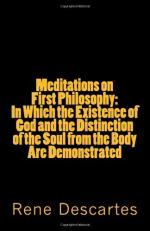Sect. XC. We must necessarily conclude that there is a First Being that created the Universe.
What must we infer from thence? The consequence flows of itself. “If so much wisdom and penetration,” says Minutius Felix, “are required to observe the wonderful order and design of the structure of the world, how much more were necessary to form it!” If men so much admire philosophers, because they discover a small part of the wisdom that made all things, they must be stark blind not to admire that wisdom itself.
Sect. Xci. Reasons why Men do not acknowledge God in the Universe, wherein He shows Himself to them, as in a faithful glass.
This is the great object of the universe, wherein God, as it were in a glass, shows Himself to mankind. But some (I mean, the philosophers) were bewildered in their own thoughts. Everything with them turned into vanity. By their subtle reasonings some of them overshot and lost a truth which a man finds naturally and simply in himself without the help of philosophy.
Others, intoxicated by their passions, live in a perpetual avocation of thought. To perceive God in His works a man must, at least, consider them with attention. But passions cast such a mist before the eyes, not only of wild savages, but even of nations that seem to be most civilised and polite, that they do not so much as see the light that lights them. In this respect the Egyptians, Grecians, and Romans were no less blind or less brutish than the rudest and most ignorant Americans. Like these, they lay, as it were, buried within sensible things without going up higher; and they cultivated their wit, only to tickle themselves with softer sensations, without observing from what spring they proceeded. In this manner the generality of men pass away their lives upon earth. Say nothing to them, and they will think on nothing except what flatters either their brutish passions or vanity. Their souls grow so heavy and unwieldy that they cannot raise their thoughts to any incorporeal object. Whatever




